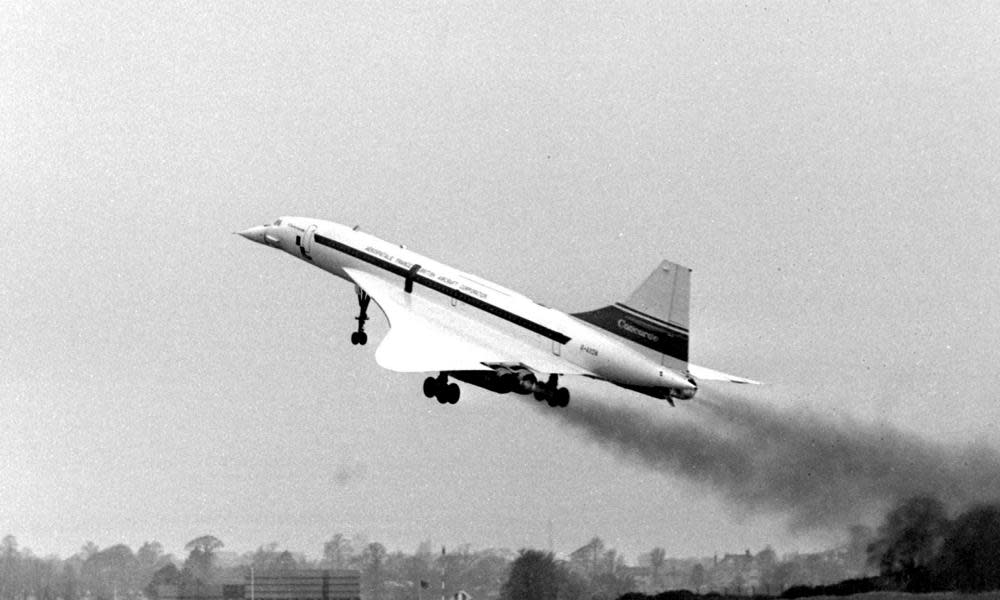Concorde was the flying Brexit: a different era but the same mistakes

The idea that we now live in an age of ‘post-truth’ implies that once-upon-a-time politics was guided by objective reality. Clearly, this is nonsense. We shouldn’t mistake a period in which the media and political establishment offered more coherent stories for a time when politics was truthful. In the recent past, politics could be astonishingly dishonest, especially when it came to supporting national machines. Concorde, the fastest lame duck ever built, was a flying Brexit. The political establishment privately despaired about its costs, whilst knowingly pretending that the project would improve Britain’s place in the world.
Few politicians actually believed in the Concorde project. It was accepted inside Whitehall that the scheme would be an economic disaster. After Harold Wilson came to power in 1964, the Anglo-French supersonic airliner only survived because the government was concerned that unilaterally cancelling the project would lead the French to sue them for more than it would cost to continue to develop the machine.
Edward Heath, the Conservative prime minister, also wanted to cancel Concorde. Heath even personally stopped Prince Phillip flying it on the grounds that it would be quite embarrassing for the government to scrap the aeroplane soon after it had been treated to a royal pilot. Concorde only continued because Heath wanted to enter the European Economic Community. Annoying the French was to be avoided. Once Britain was in the Community, the unions kept Concorde afloat. The second Wilson administration, a minority government, could not risk killing off Concorde for fear that the resulting the outcry in the labour movement would endanger their fragile political position.
What, then, did politicians say about Concorde? Well, Concorde was not only going to bring supersonic speed to civil air travel, but also ensure that Britain could capture a crucial new export market and create a world-beating aviation industry in the coming supersonic revolution. In this bright future, Britain’s technology would be bought across the world. Most of the politicians who made these arguments knew better.
Michael Heseltine is a crucial case in point. In the early 1970s, he emerged as the key Concorde salesman, tasked with going on a world-wide sales tour with the aeroplane to attract foreign buyers. In his memoirs, Heseltine is remarkably open about his two conflicting ministerial duties: to honestly inform parliament about the sales prospects of Concorde and to sell the aeroplanes to foreign airlines. Heseltine decided to do the latter: “It was not credible for an aerospace minister to separate himself from the sales campaign.” Only the Shah of Iran was thought to be a likely purchaser, and even he did not buy a Concorde.
But surely journalists were speaking truth to power? Well, no. The newspapers were saying what the powerful wanted them to say. Optimistic estimates about the future profits Concorde supplied by the British Aircraft Corporation filled the pages of the broadsheets and tabloids. The only journalist who called for Concorde to be cancelled with any persistence was the much-derided Andrew Wilson of the Observer. Other media voices were aware of the flaws in the project, but found their efforts to expose them hampered. In the late 1960s, the BBC reached a compromise with the BAC: the broadcaster could question the project as long as they gave Concorde’s manufacturers the right to reply. “You may not realise it but this was a very considerable movement forward”’, wrote a BBC news journalist.
Even when the unprofitable nature of Concorde was in plain sight, the public discourse around the aeroplane continued to celebrate its commercial viability. As secretary of state for industry, Tony Benn revealed to parliament in 1974 that Britain would not recover any of the £600m that the government spent on Concorde. Putting sixteen Concordes into production would also cost another £200m, at the very least. Due to their high running costs, Concordes could not be sold for more than a fifth of the price of manufacturing, so the cost could never be recouped. But, still, newspapers continued to talk of Concorde’s profitability. When the government announced its decision to go ahead with sixteen Concordes, the press and politicians were jubilant. But the celebration was delusional. Only the captive national airlines of Britain and France ever operated Concorde. It was to be described by one economist as among the three worst decisions in civil investment in the history of humanity.
Much of the Brexit project is a Concorde: bold projections of a future defined by great British export strength built on shaky presumptions and perhaps even knowing deceit. The aeroplane is a reminder of how nationalistic fantasies, an ill-informed public debate and a lack of government transparency can mask a coming economic disaster.
Tom Kelsey is a PhD researcher at the Centre for the History of Science, Technology and Medicine at King’s College London. His thesis is titled ‘The Power of White Elephants: The politics of Concorde and nuclear power in Britain, 1956-1990’. He can be found on Twitter as @tomkelsee.

 Yahoo News
Yahoo News 
